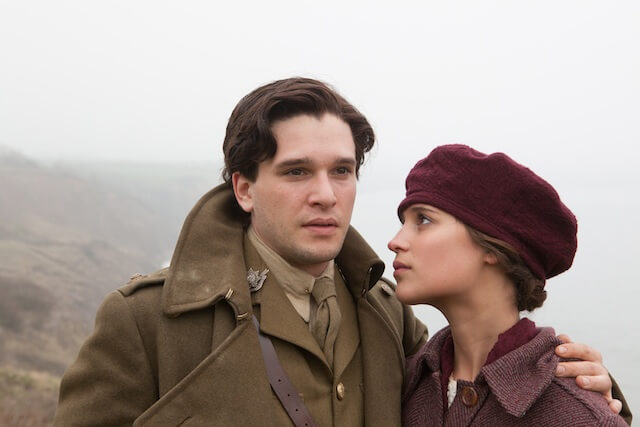‘Testament of Youth’ Vera Brittain’s “Testament of Youth” is one of the great antiwar and feminist works — a memoir of its author surviving several family members and loved ones, plus untold soldiers under her care as a nurse, during World War I. You wouldn’t know its rep watching the new film made from it, which mashes it into a tasteful historical saga so generic one could comfortably slip into a peaceful slumber just by staring at its banal images. It doesn’t reveal its full pacifist bona fides till it’s nearly over, instead plodding through a melodrama — an unusually brutal melodrama, admittedly, in which our hero (Alicia Vikander) suffers at every turn. She survives, but only to mourn the dead and make a fiery case (though largely unheralded) for an end to such genocide. The final stretch is admittedly stirring, but it’s too little too late, and far too robotic besides. For a film preaching the glories of life, it’s a film largely without it. Any spontaneity comes from the actors, and usually in between lines of dialogue. There’s a lot to be gleaned from simply watching Vikander’s delicately expressive face, as Vera struggles to become an independent woman in the first quarter of the last century, much to the confusion, though eventual acceptance, of her aloofly traditional father (Dominic West). Her studies have to be put on hold when war escalates, leading a sufficiently guilt-tripped and worried Vera — who has a brother (Taron Egerton) and a lover (Kit Harington) in the skirmish — to do her part, even if her part involves tending to men on death’s door. This eventually snakes its way into something meaningful, albeit only after playing like a properly English, grisly version of “Gone with the Wind”; director James Kent even brazenly, unaccountably steals its famous crane shot over a sea of wounded soldiers. And it still, right up to the end, plays as thought constructed via a computer program. Its dialogue is declarative, unaware cliches even exist. Vera’s proclamation against marriage is interrupted, actually mid-word, by the arrival of the man who will instantly capture her heart. Other times it’s overly afraid viewers will miss basic points; we learn of Germany’s ultimatum to war by both a conspicuously placed newspaper reading same and a character declaiming, “Ah, newspaper!” Fine actors (West, Egerton, the great, great, of late criminally underused Emily Watson) struggle to fill out their too brief screentime and thin characters with something resembling life. It’s like a lampoon of stodgy period dramas, except that it’s a film about unimaginable horrors, culled from a noble source whose message is still sadly relevant.
Director: James Kent
Stars: Alicia Vikander, Kit Harington
Rating: PG-13
2 (out of 5) Globes
‘Testament of Youth’ is an overly tasteful pacifist plea

Sony Pictures Classics
Follow Matt Prigge on Twitter @mattprigge


















